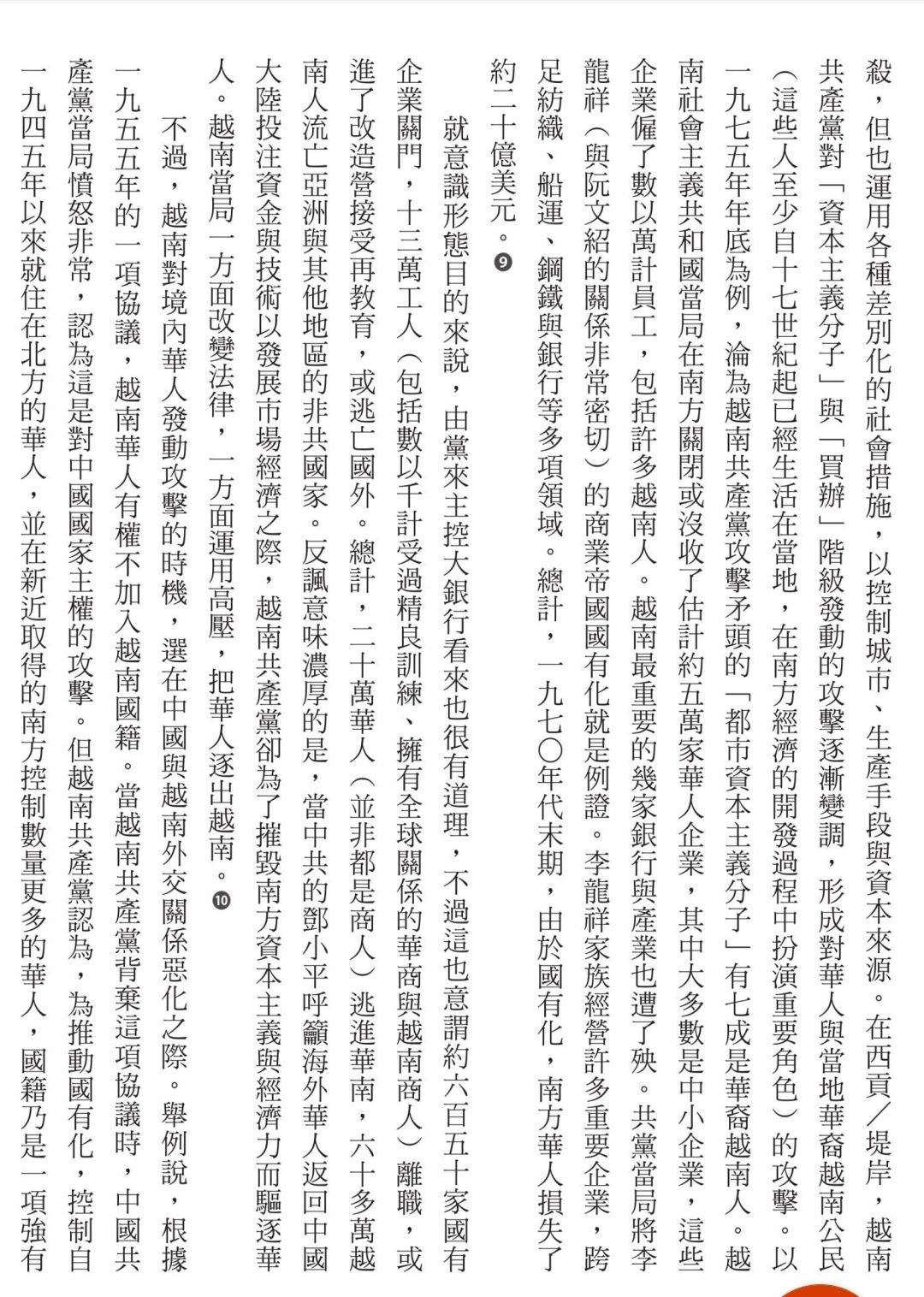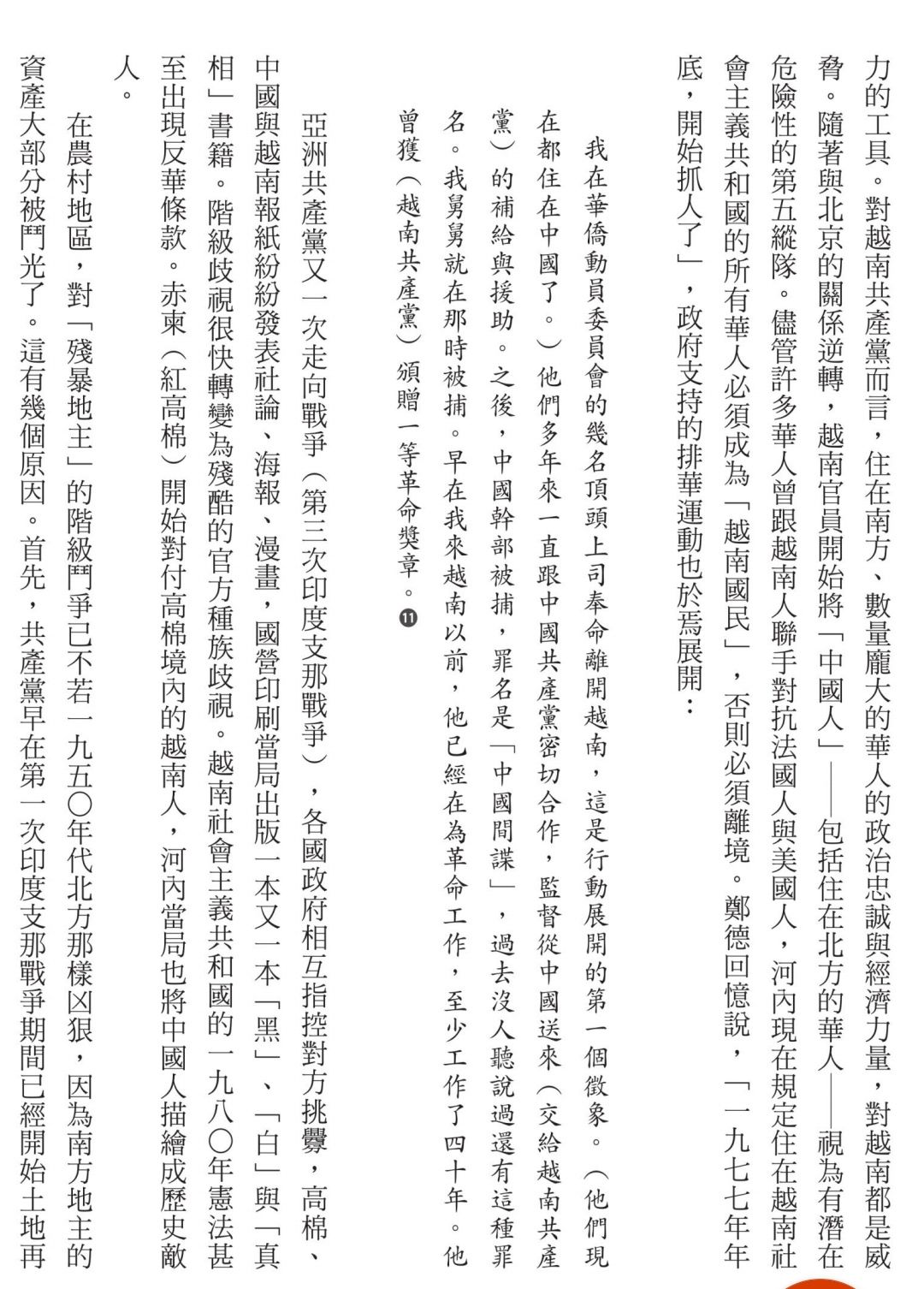Quora问答:How much do Vietnamese students know about reeducation camps?
https://www.quora.com/Vietnam-How-much-do-Vietnamese-students-know-about-reeducation-camps
答主一:
In Vietnam, History course in primary and secondary education only cover from prehistory to 1975, so the average Vietnamese students know nothing about reeducation camps.
Even if the curriculum covers more periods, I doubt those events would make it to the textbooks. As far as I know, many dark periods in the history are hidden as well. I didn’t know that Vietnamese Kingdom was the main factor for the vanish of Champa country, or the occupation of Cambodia by Nguyen Dynasty in the late 18th century, or the betrayal of the Catholic community when French Army invaded the country in the 19th century. Important but somewhat dark events like the Lê - Mạc war or Trịnh - Nguyễn war are less than 1 page each in highschool textbook, and those pages are optional lessons.
Also in my opinion, even though the re-education camps were brutal, they were not unreasonable at all. Despite millions of military personels and police officers, only around 40 thousand people suffered long term prison in which 14 thousand people were released in less than 4 years, most people only “suffered” several days of re-education.
Of course people can point their fingers at those numbers and say how brutal those “commie” were. But those reeducation camps were a pretty common practice after a war. In France for example, the Resistance started executing Vichy government officers from summer 1944, with the number exceeding 10 thousand, followed by the “official” retribution later with 50,000 offenders were punished by “national degradation” (loss of civic rights for a period of years), almost 40,000 received prison terms, and between 700 and 800 were executed. Or in British, when the Germans prisoner of war were forced to work in labour camps and “Fraternisation between the soldiers and the local population was strictly forbidden by the British government”. How about those numbers?
答主二(签名档:Vietnam, used to be colonized by China and France):
My family know people who used to go to re-education camps. People from re-education camps like to play the victim and lament how badly they are treated while in re-education camps. Previously when they are in the South Vietnam army, which was massively funded by American taxpayers' money, these soldiers can enjoy a lot of fun, such as booze, cigarettes, whores, polygamy, etc. Back then in my hometown village, a South Vietnam army soldier often had at least two wives. As these wives are dependent on them for money, the soldiers can afford to be violent and treat them badly. They pay little attention to the welfare and education of their own kids. When the US left and subsequently the South Vietnam regime fell, many soldiers try to fled to the US by clinging to helicopters and boats, those who are left behind must go to re-education camp. There these soldiers complain about being treated inhumanely. They have to actually work, cannot drink alcohol or enjoy luxurious food as before. So utterly inhumane! The US government, being kind souls that used to help Vietnam got rid of stupid virgin forest with Agent Orange and create fishing lakes in North Vietnam by dropping bombs with B-52 planes, immediately believe their poor allies and accuse Vietnam of inhumane treatment in re-education camps and blocking "true" information. Of course, Vietnamese people, who actually lived through war or at least have relatives and acquaintances who actually went to re-education camps must know less than American politicians, some of whom do not even speak a second language or ever step foot outside the US.
答主三:
No in textbooks, many on the internet.
About the reeducation camps, that’s still too merciful towards those that sold a half of our country to forign invaders. They are, basically, prisons. My grandfather was a lieutenant colonel, and he just had to spend like… 3 days in such camps. Then he went back home and nothing more. Now both my parents are teachers and CP members. About such bullshit things you hear from those goddamn refugees who would love to live as slaves than free men? What will you do to someone that’s against the country? Be nice to them?
My answer is NO. If they betray the country, then no mercy.
Screw those traitors. The gorv should have done the “massacre” bullshit that the ROV kept shittalking about during their ruling days.
P/s: You can believe on them, then cry me a river. I’ll play for you the world’s smallest violin.
匿名答主:
This was a violation of human rights and not a proud moment for their Government. The Reagan administration regarded these inmates as political prisoners and allowed them to emigrate to the United States in 1989.
It’s certainly not on the curriculum over there. Students are taught a very distorted version of history to justify the Communist Party’s absolute power and Tran Quiet Thang’s answer shows you how brainwashed students can be.
Tran Quyet Thang, let’s say you are correct in assuming every single Vietnamese refugee was in fact an economic migrant. In a Communist country where the state countries all aspects of the economy, then they are responsible for how bad the economy really was and still is. Now, if the state implements economic policies as a form of punishment towards those who don’t share the same ideological views as them or fought against them, then they are technically still being persecuted. This did indeed happen where land, money, businesses were stolen by the Communist Party and redistributed amongst themselves. I’m sure many Vietnamese would agree that they still do it now. Anyway, I agree some who fled were not put into re-education camp. However, there is actually another term for it and that’s Economic Refugees. Beating, imprisoning, murdering, exiling, sending them to fight in Cambodia, clearing landmines is not the only way to persecute someone, they can target them through economic policies too.
Vietnam is still a police state and the citizens do not enjoy the basic freedoms we former Vietnamese now enjoy. I think the Government would never acknowledge the attrocities they committed let alone teach the younger generation about what really happened. I do however, think the attitude towards people they used to class as traitors has changed. Since many of us still have roots in Vietnam, we send money to relatives, collectively raise money amongst our communities to donate for infrastructure projects back in our home towns. Remittance from these former traitors and Economic refugees accounts for a fairly substantial part of the GDP. 6.4% in 2015.


注:封面图片为近期走红的国内视频博主“东南亚漂”。其视频内容表面是针砭越南时弊,实则对国内社会议题指桑骂槐。现已被B站限流,并基本禁止评论,但还没被封杀